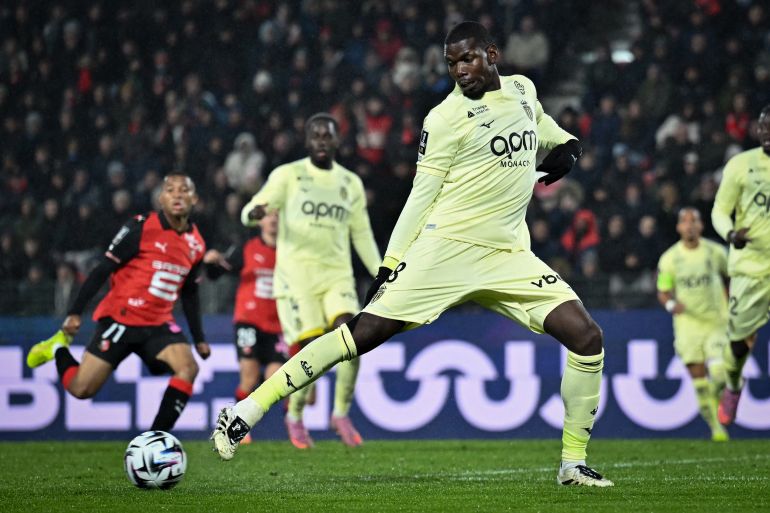by news organizations
Week in Pictures: From Israeli attacks in Lebanon to protests in Sri Lanka
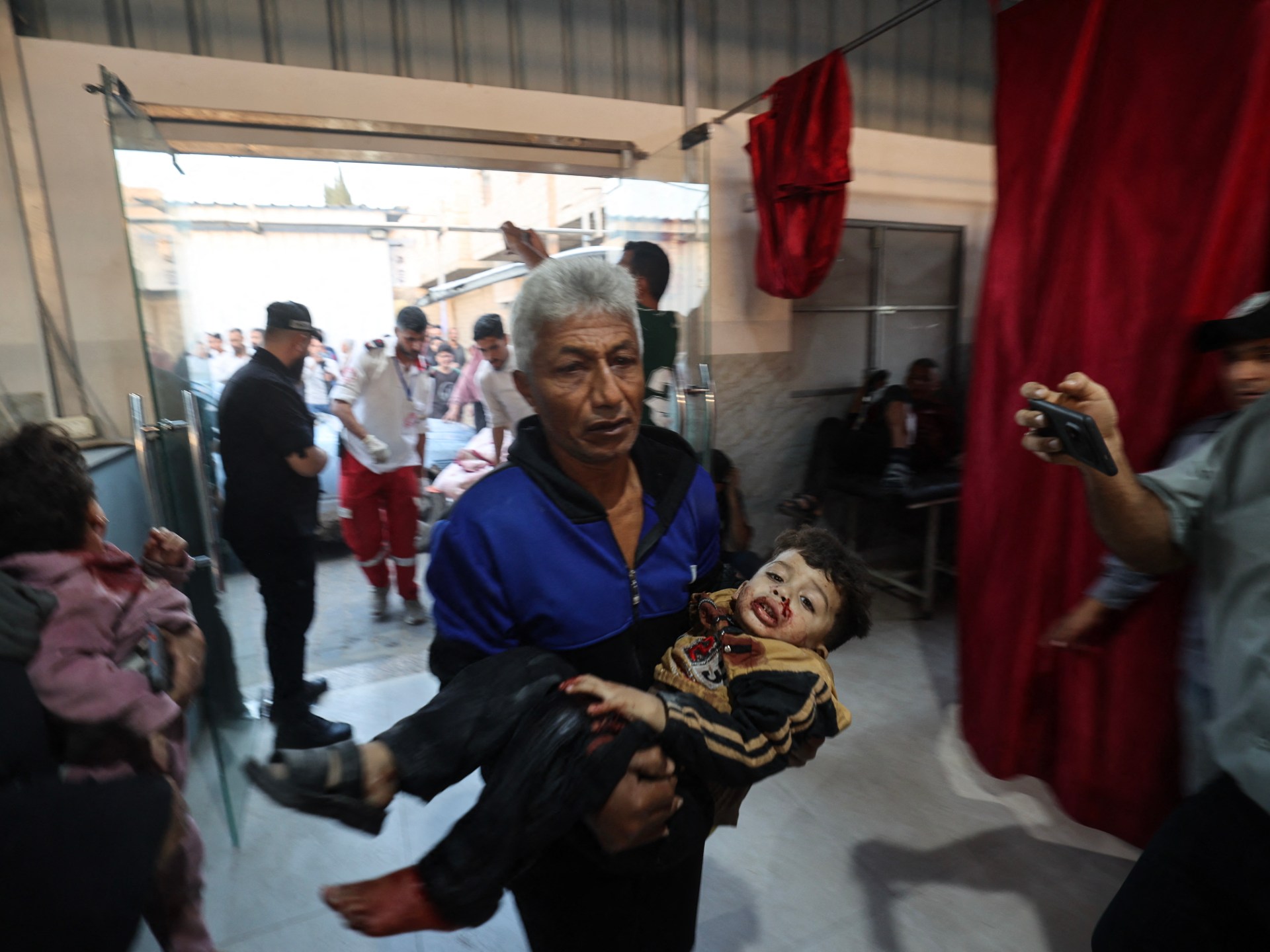

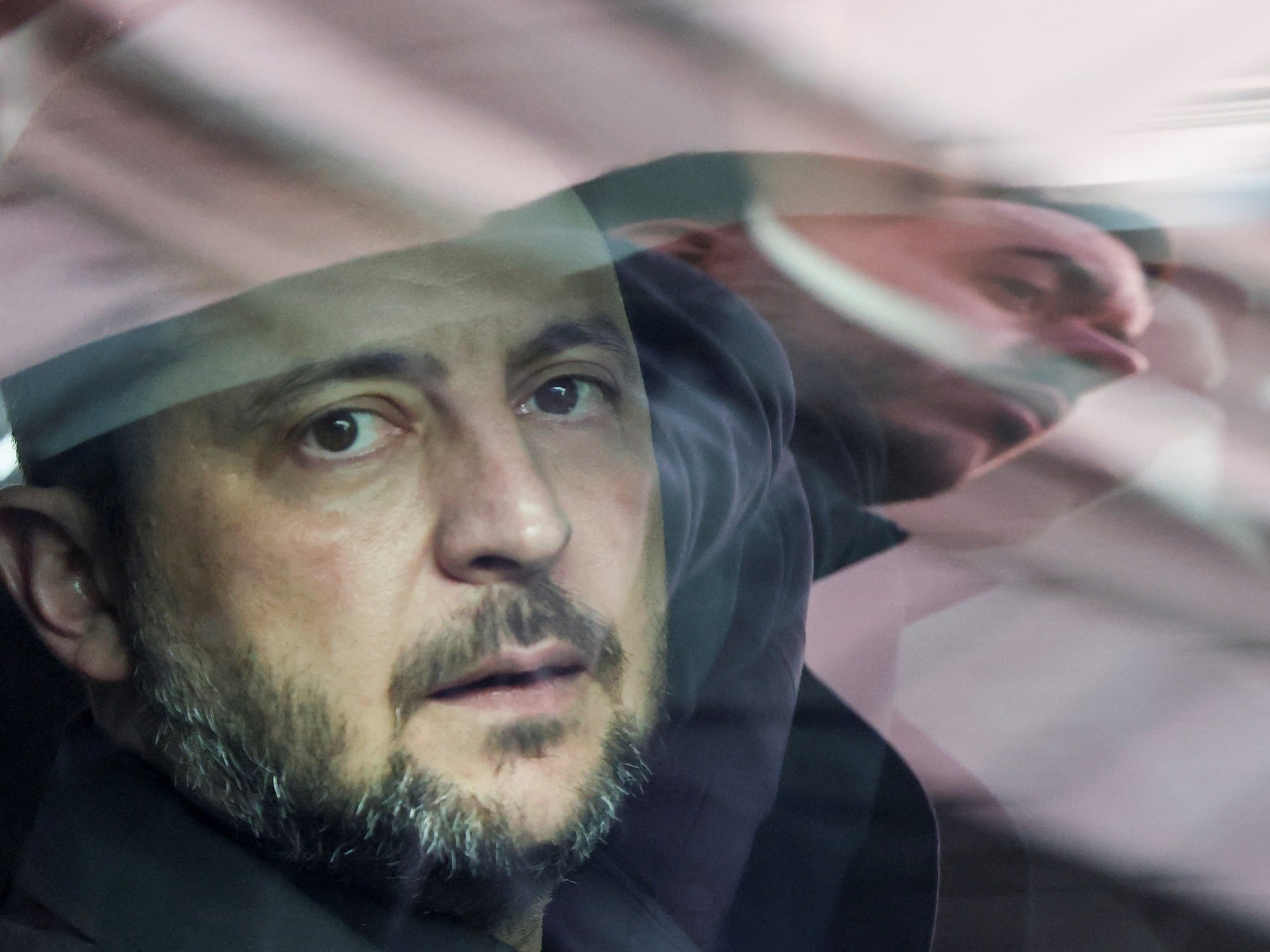
Ukrainian anticorruption authorities made the allegations that Volodymyr Zelenskyy’s close associates were involved in a scheme to steal $100 million from Ukraine’s energy sector on November 10th.
The investigation, which is being led by the National Anti-Corruption Bureau of Ukraine (NABU), an organization supported by Western governments, has so far included Zelenskyy’s business partner Tymur Mindich and two government ministers. Andriy Yermak, the president’s chief of staff, may also be at risk, according to Ukrainian and Western media.
Slowly, theatrically, and strategically, the investigation’s method of revealing information and identifying suspects feels like it is conducting a political campaign under the pretext of an anticorruption drive.
Zelenskyy’s reputation abroad and the Ukrainian cause as a whole have been severely damaged by the scandal. The president of Ukraine emerges as a lame duck who will follow what is ordered of him by whoever is tying the knot, which might be Donald Trump’s administration.
Talks between Russia and Ukraine are one area where a significant change has already occurred. The man tasked with leading the negotiations, Deputy Foreign Minister Sergiy Kyslytsya, was named in a story published on November 11 that made it clear that his meeting with Moscow was suspended because it was failing to produce any desired outcomes. Just a week later, Zelenskyy made the announcement that he wanted to resume discussions with Russia.
If we are to believe media leaks, then immediately the idea of an emerging American peace plan that envisages Ukraine buckling down to all the important Russian demands for a ceasefire appeared. Zelenskyy continued to support the US despite a few defiant statements made by Ukrainian officials and made the promise to work with the US. His defiance has been severely hampered by the corruption scandal.
The fact that the Ukrainian president himself is now a clear scapegoat for what is essentially Ukraine’s looming defeat makes the possibility of peace more plausible today.
Indeed, Trump’s earlier this year-led discussions failed primarily because no one wanted to accept responsibility for a result that was so inconvenient from the hopes the war’s cheerleaders had espoused. A military defeat today may bring Kyiv to its own, but it would also be a fatal blow to lobbyists and politicians who promoted the idea that Russia, a major nuclear power, could be forced to accept Western dominance.
Throughout the entire conflict, Western policy toward Russia was underpinned by that illusion. The West was unable to change, which is the main reason Kyiv resisted accepting the outcome of the conflict.
Ukraine’s Western allies have long been at odds with each other with regards to military aid, funding, and sanctions against Russia. Moscow’s army, which is only now much stronger and far more technologically advanced than it was at the start of the conflict, hasn’t been stopped by 19 packages of harsh sanctions against it.
In addition, Ukraine has been having issues with territorial and human losses as a result of drafting. By April, it might have exhausted its Western funding. Even worse, close European allies like Poland and Germany have indicated that they are hesitant to continue providing funding for the large numbers of Ukrainian refugees they are accueilling.
No one wants to be blamed for achieving a much worse settlement than could have been possible had this entire conflict been avoided, despite the fact that Europe’s appetite for more war with Russia is largely over.
Trump, who has long referred to this conflict as “Biden’s war,” accusing his predecessor President Joe Biden of starting it, is not at risk.
Given how invested they have been in the promise that Russia could be defeated on the battlefield, it is much harder for European leaders and Zelenskyy to accept it.
One needs to recall the events of December 2019 when Zelenskyy and Vladimir Putin met in Paris and agreed to end hostilities and freeze the front line over the course of the next year.
Kyiv could only dream about the war ending it if it had ended today. Ukraine would have remained informally a sovereign state throughout the Donbass region, but only a small portion of that region would have experienced Russian-influenced autonomy. The Crimean Peninsula, which Russia occupied and annexed in 2014, would have been lost in Ukraine.
However, Zelenskyy changed the course of events with Biden’s election as president in January 2021 by launching a campaign to press Russia to agree to better conditions for Kyiv.
While his Western allies attempted to compel Germany to stop work on the Nord Stream 2 pipeline, a significant Russian export energy project, he launched a loud campaign for Ukraine’s accession to NATO. Moscow was also challenged by London’s decision to launch a battleship into the waters off Crimea, which Russia views as its own territory. In February 2022, Putin launched an entire invasion of Ukraine following more than a year of risky brinkmanship.
Ukraine finally agreed to a comprehensive ceasefire along the current front lines this year, moving past its legitimate but wildly unrealistic demands for a full withdrawal and reparations. After losing large tracts of territory, a lot of infrastructure, 14,500 civilians, and up to 100 000 military personnel, it did so.
A peace treaty reached under Russian control would be extremely unfair to Ukraine and be contrary to international law. The only thing it has to offer is that the nation is being plunged even deeper into the pheromone tunnel of devastation and collapse.
The expected combination of performative defiance, jingoism, and virtue signaling was found in the draft peace plan. It shows that there isn’t a solid strategy that could improve Ukraine’s standing in the negotiations. Conveniently, however, Zelenskyy’s aided by corruption frees up pro-Ukrainian supporters in the West and releases them from responsibility for the deadly mess they caused.
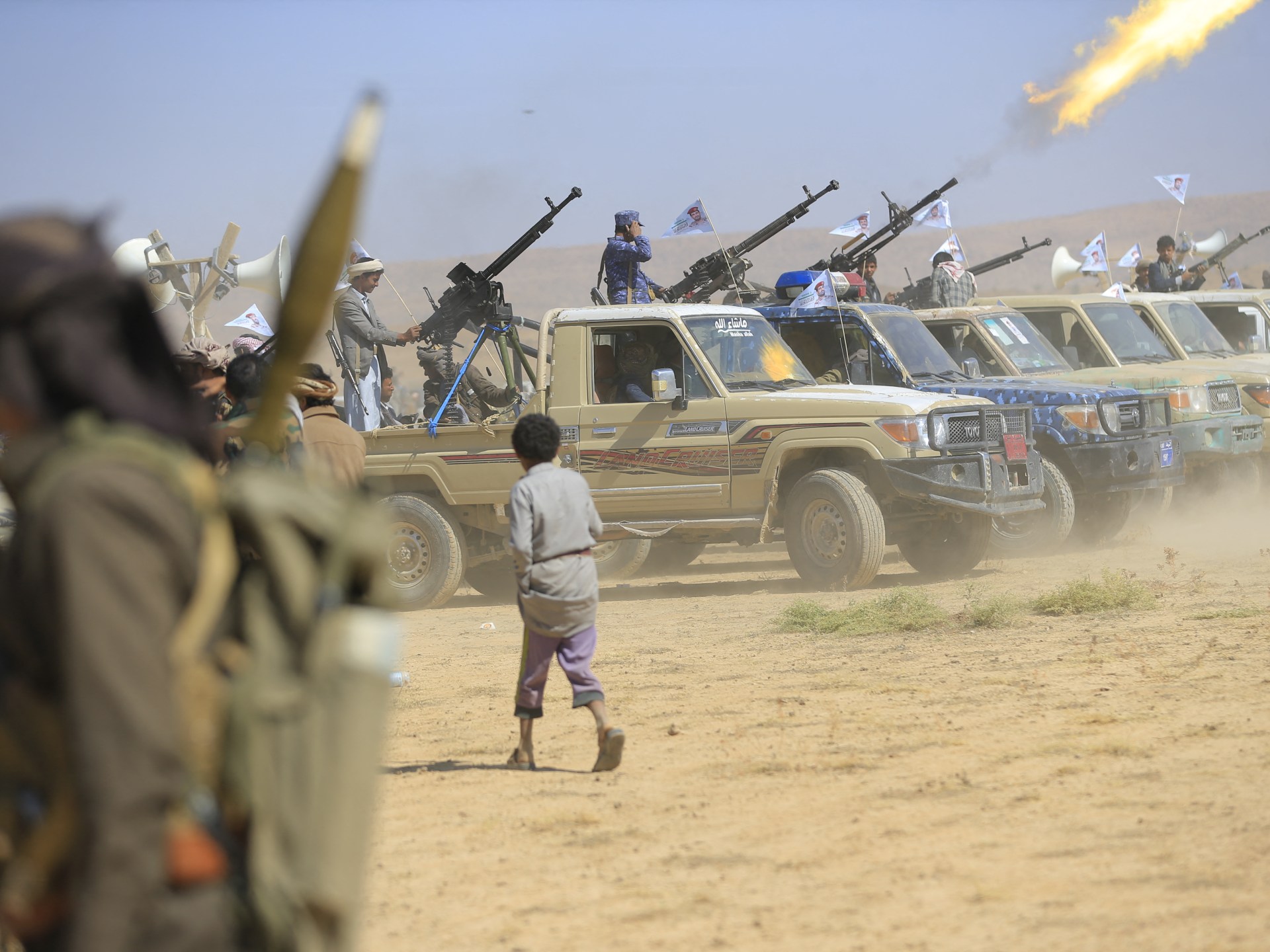
Published On 23 Nov 2025
17 people have been executed by firing squad in Yemen after being accused of espionage by Israel’s and its western allies.
Houthi-run media reported that the Specialized Criminal Court in the capital Sanaa on Saturday morning handed down the sentences in the cases of “espionage cells within a spy network affiliated with American, Israeli, and Saudi intelligence.”
list of 3 itemsend of list
According to Saba and other outlets, the court sentenced the 17 men to execution “to be carried out in a public place as a deterrent,” as well as publishing a list of names.
The total number of trial defendants in this case now stands at 20 while a woman and a man are serving ten years in prison.
According to Houthi-run media, state prosecutors in 2024 and 2025, including the United Kingdom, charged the defendants with “espionage for foreign countries hostile to Yemen.” The defendants may now appeal the sentences.
‘Since allegedly “directed” intelligence officers who were in contact with the accused Yemenis, whose allegedly “directed the targeting of several military, security, and civilian sites and the destruction of extensive infrastructure’.
After Israel’s genocidal war broke out in Gaza in October 2023, the Houthis launched attacks on Israel and international maritime transit through the Red Sea in a purported effort to support Palestinians who were under siege. In response, the United States and the UK carried out dozens of deadly joint air strikes across Yemen.
Since last month’s ceasefire agreement in Gaza, the Houthis have stopped attacking.
In addition to killing political leaders and dozens of civilians, Israel has carried out frequent airstrikes against Yemen and its infrastructure, hitting fuel tanks, power plants, and a crucial port city where desperately needed humanitarian aid transits through.
The Houthis’ prime minister was killed in Sanaa in an Israeli airstrike in August, according to the Houthis’ claims in August.
According to a statement released at the time, Ahmed al-Rahawi and “several” other ministers were killed.
In the cases disclosed on Saturday, Houthi authorities, who now control Sanaa and some of Yemen’s northern regions after an armed uprising more than a decade ago, did not mention any connections to the UN or other international organizations.
However, they have increasingly raided UN and NGO offices over the past year, detained dozens of mostly local but also international staff members, and taken all-important equipment.
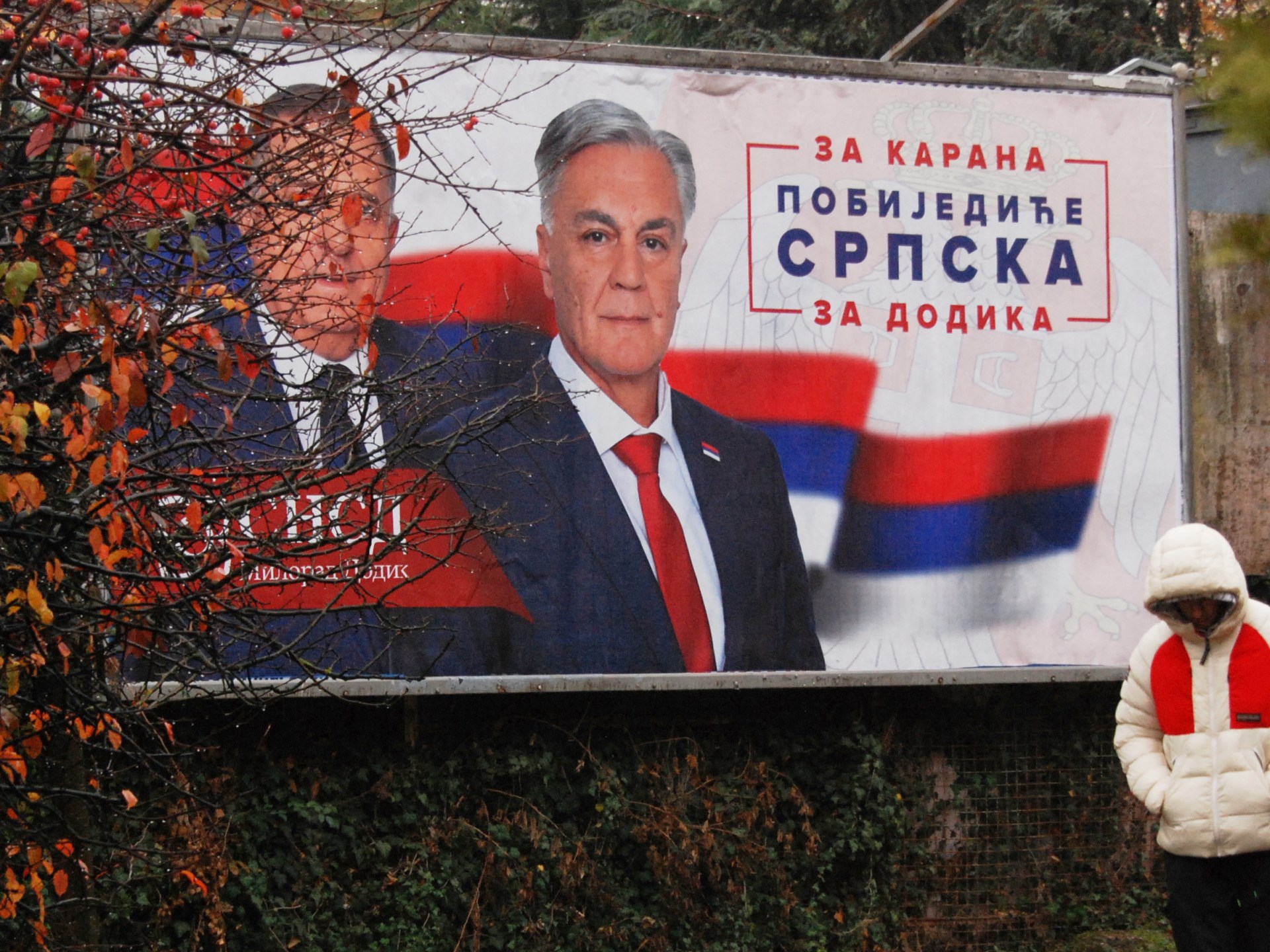
Published On 23 Nov 2025
After being found guilty of defying the international appointee’s rulings, Dodik was fired from office for defying Bosnia’s international peace envoy, Christian Schmidt, who had oversaw a peace agreement that had kept Bosnia together since the end of its 1992-1995 war, which resulted in the deaths of tens of thousands of people and caused thousands of others, Dodik was imprisoned for defying the international envoy.
list of 3 itemsend of list
Additionally, the court forbade him from running for president for six years, and gave him a one-year prison sentence that he avoided by posting bail. The Supreme Court of Bosnia upheld that decision in early November.
Dodik’s nationalist party, which has been in power for almost 20 years, is seen as facing a significant challenge with the election.
The winner will serve less than a year before an October general election as a result of the early voting. One and two candidates have a choice of about 1.2 million voters.
Sinisa Karan, a 63-year-old former interior minister who is Dodik’s personal choice, and Sinisa Karan, a personal choice, are the two main contenders to succeed him. The Union of Independent Social Democrats is still Dodik’s party’s leader.
Branko Blanusa, a 56-year-old electrical engineering professor who has repeatedly brought corruption allegations against Dodik and his party, was chosen by the main opposition group, the Serb Democratic Party.
The Central Election Commission will release the final official vote count only after the body has verified all outcomes, but preliminary results are anticipated on election night.
Along with the Federation of Bosnia and Herzegovina, which both enjoy significant autonomy, Republika Srpska is one of Bosnia’s two main political parties. The Brcko District, a third, modest self-governing administrative body in the nation, has equal rights to the two.
Bosnian Serb leaders formally established the post-war constitutional structure of Bosnia in 1992, following the Dayton peace agreement, as Republika Srpska.
According to the most recent census, which was conducted more than a decade ago in 2013, Serbs make up 82 percent of its residents and smaller Bosniak and Croat minorities.
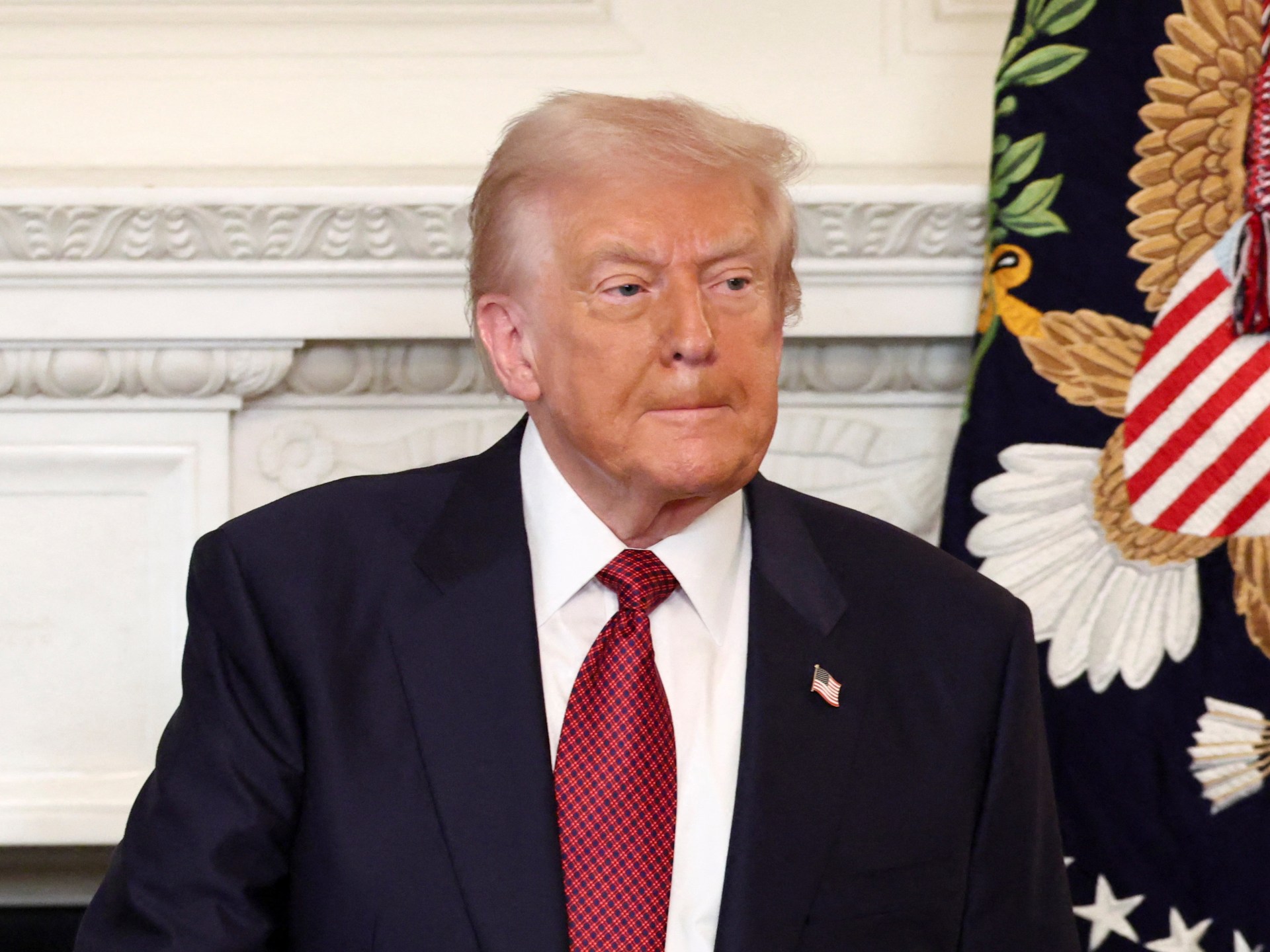
Trump made the suggestion late on Saturday that Democrats who earlier this week sent video messages to service members should be imprisoned.
list of 3 itemsend of list
In a social media post, he wrote that “THE TRAITORS THAT TOLD THE MILITARY TO DISOBEY MY ORDERS SHOULD BE IN JAIL RIGHT NOW, NOT READ THE FAKE NEWS NETWORKS TRY TO DISCLAIMER WHAT THEY SAID WAS OK.”
“IT WAS NOT, AND NEVER WILL BE!” SEDITION IS A MAJOR CRIME, AND IT WAS AT THE HIGHEST LEVEL. There is no other explanation for what they said.
The most recent comment was made after Trump’s latest video, which he appeared to call for the Democrats’ death penalty, caused a stir on Thursday.
“Seditious behavior that is passible to death”! Trump authored .
Senator Elissa Slotkin, a former CIA agent, first posted the 90-second video on Tuesday. Numerous Democratic legislators who served in the military and intelligence organizations were present.
The lawmakers call on service members to “stand up for our laws” and claim that the Trump administration “is pitting our uniformed military against American citizens” in the video.
“Our laws are simple. They assert that “you can reject unlawful orders.”
The Democratic lawmakers did not specify what to refuse in the event of an unlawful order from the military. However, Trump’s plan to send federal forces to a number of Democratic-controlled US cities coincided with their message.
Democrats criticized Trump for calling for the death penalty, with some calling for the president’s use of it.
One of the Democrats who appeared in the video, Chrissy Houlahan, told CNN on Thursday, “There is no other way to explain it than to say that vehemently the president has put our lives in danger.”
He literally translated as “he directly said that we were seditious and traitors” and literally translated as “he literally said that we should be hanged. There is no other way to interpret that besides as a call for our deaths, so to speak.
Following the assassination of right-wing commentator Charlie Kirk in September and Melissa Hortman’s June murder, the US is still reeling from political violence.
Trump appeared unafraid of criticism despite the outcry over his earlier admissions to the death penalty.
He wrote on Saturday, “Many Great Legal Scholars AGREE THAT THE DEMOCRAT TRAITORS THAT TOLD THE MILITARY TO DISOBEY MY ORDERS, AS PRESIDENT, HAVE COMMITTED A CRIME OF SERIOUS PROPORTION.”
The US military’s commander is the president, and the law mandates that officers follow their superiors’ orders.
However, some legal scholars have pointed out that all active duty officers are subject to the Uniform Code of Military Justice, which only lists penalties for those who disobey “lawful orders” and that service members are required to swear an oath to the Constitution.
Additionally, soldiers who obstruct orders without permission are not protected by the laws of war.
